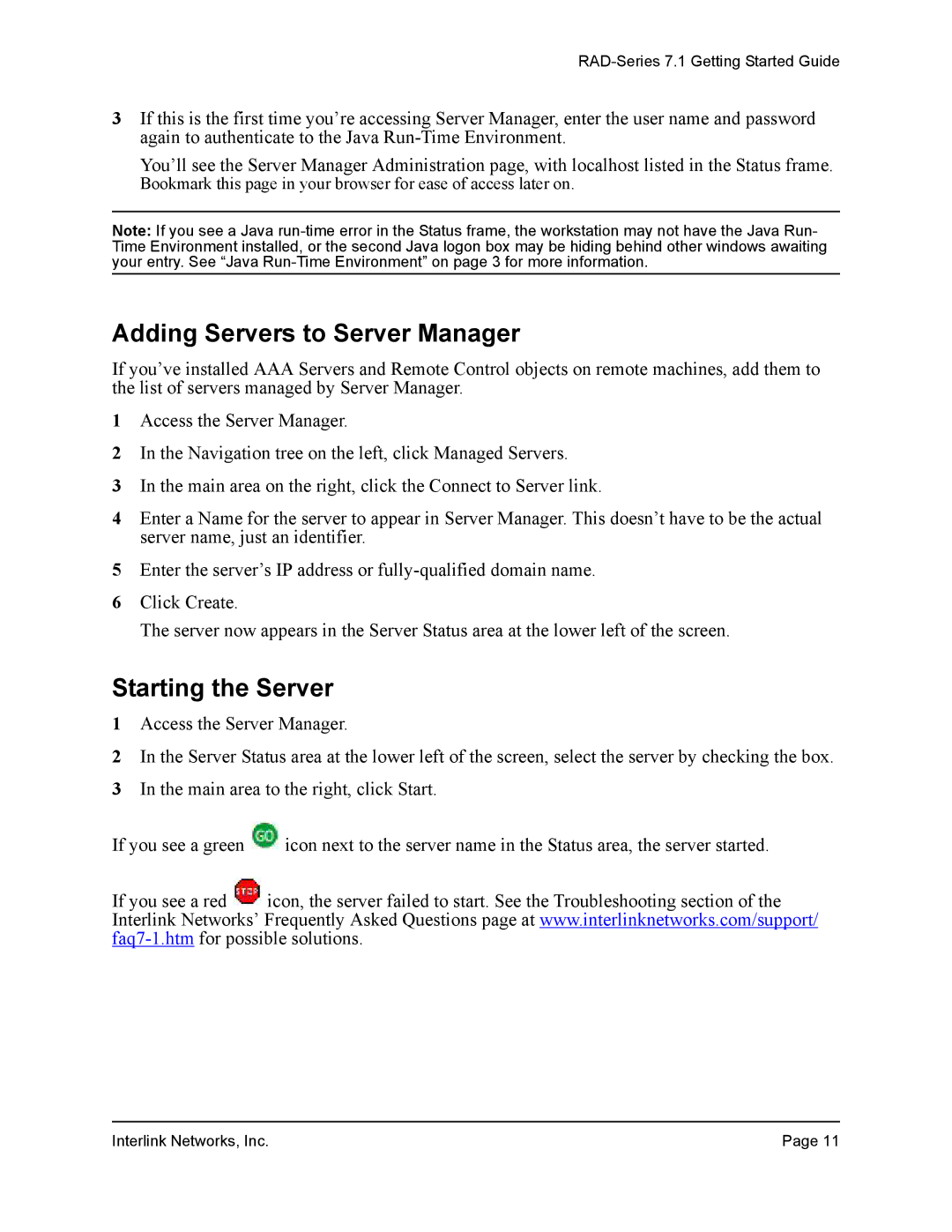
RAD-Series 7.1 Getting Started Guide
3If this is the first time you’re accessing Server Manager, enter the user name and password again to authenticate to the Java
You’ll see the Server Manager Administration page, with localhost listed in the Status frame.
Bookmark this page in your browser for ease of access later on.
Note: If you see a Java
Adding Servers to Server Manager
If you’ve installed AAA Servers and Remote Control objects on remote machines, add them to the list of servers managed by Server Manager.
1Access the Server Manager.
2In the Navigation tree on the left, click Managed Servers.
3In the main area on the right, click the Connect to Server link.
4Enter a Name for the server to appear in Server Manager. This doesn’t have to be the actual server name, just an identifier.
5Enter the server’s IP address or
6Click Create.
The server now appears in the Server Status area at the lower left of the screen.
Starting the Server
1Access the Server Manager.
2In the Server Status area at the lower left of the screen, select the server by checking the box.
3In the main area to the right, click Start.
If you see a green ![]() icon next to the server name in the Status area, the server started.
icon next to the server name in the Status area, the server started.
If you see a red ![]() icon, the server failed to start. See the Troubleshooting section of the Interlink Networks’ Frequently Asked Questions page at www.interlinknetworks.com/support/
icon, the server failed to start. See the Troubleshooting section of the Interlink Networks’ Frequently Asked Questions page at www.interlinknetworks.com/support/
Interlink Networks, Inc. | Page 11 |
